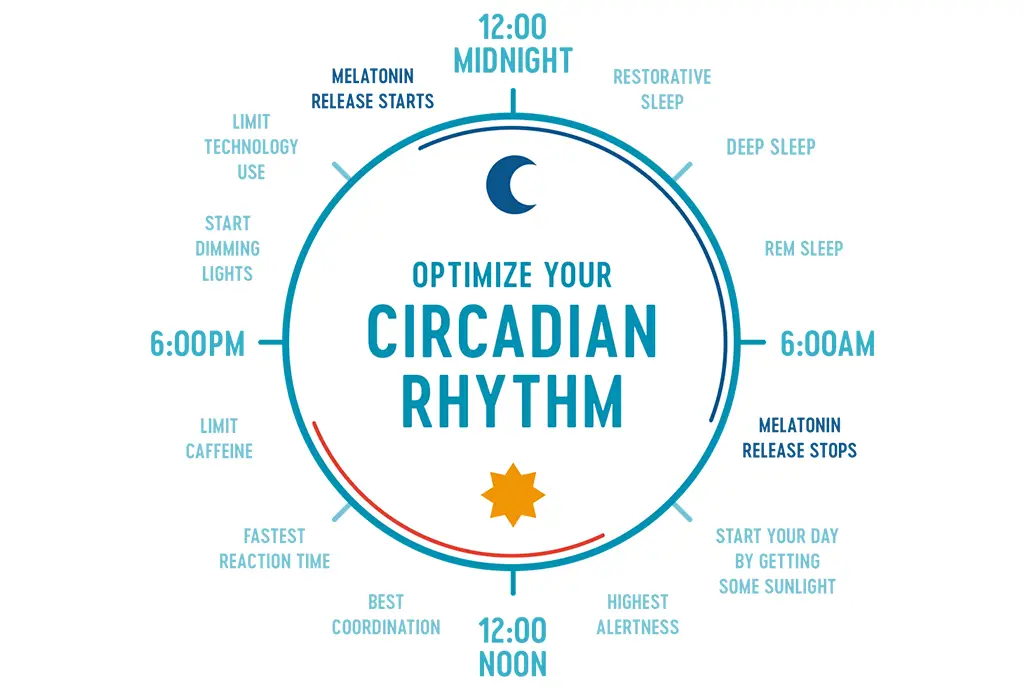Ashwagandha (Withania somnifera), often referred to as “Indian ginseng” or “winter cherry,” is a small shrub with yellow flowers native to India and North Africa. Its roots and berries have been used for centuries in traditional medicine. The primary benefits of Ashwagandha include reducing anxiety and stress, boosting brain function, and improving physical performance and strength.
How Ashwagandha Works in the Body
Ashwagandha works in the body through various mechanisms. It acts as an adaptogen, helping the body manage stress by regulating cortisol levels and modulating adrenal function. Additionally, it boosts the immune system by enhancing immune cell activity and exerting antioxidant effects, which protect cells from damage caused by free radicals.
Ashwagandha also supports cognitive function by providing neuroprotective effects and improving memory and cognitive performance. Furthermore, it enhances physical performance by increasing energy levels and promoting muscle strength and endurance. Lastly, it aids in hormonal balance by influencing thyroid function and regulating sex hormones.
Overall, ashwagandha’s diverse mechanisms of action contribute to its reputation as a beneficial herb for overall health and well-being.
Factors Influencing The Best Time to Take Ashwagandha
The optimal time to take Ashwagandha depends on several factors, including individual health goals and the body’s circadian rhythm. The body’s internal clock affects how it processes various substances, making timing a crucial aspect of supplementation.
1. Purpose of Use

The optimal time to take ashwagandha can depend on the specific benefits you are seeking. For instance, if you are taking ashwagandha to manage stress and anxiety, taking it in the morning can help you feel calm and focused throughout the day. Conversely, if you are using it to improve sleep quality, taking it in the evening may be more beneficial.
2. Form of Supplement

Ashwagandha is available in various forms, including capsules, powders, and tinctures. The form you choose can affect the timing of ingestion. For example, ashwagandha capsules are often taken with meals, while powders might be mixed into morning smoothies or evening teas, influencing when it’s most convenient and effective to take.
3. Body’s Circadian Rhythms

The body’s natural circadian rhythms, which regulate sleep-wake cycles and other physiological processes, can also influence the best time to take ashwagandha. Some people might find that taking ashwagandha in the morning aligns better with their body’s natural rhythms, promoting daytime energy and alertness. Others might benefit more from evening doses, especially if they experience nighttime anxiety or insomnia.
4. Individual Metabolism

Metabolism varies from person to person, affecting how quickly and effectively the body absorbs and utilizes ashwagandha. Those with faster metabolisms might require more frequent dosing or specific timing to maintain optimal levels in the body, while those with slower metabolisms might find once-daily dosing sufficient.
5. Dietary Considerations

Ashwagandha can be taken with or without food, but some people might find that taking it with a meal helps to reduce potential stomach discomfort. The type of food you eat can also impact its absorption; for instance, taking ashwagandha with healthy fats may enhance its bioavailability.
6. Type of Ashwagandha Extract

Ashwagandha supplements come in various forms, primarily distinguished by the type of extract used. The two main types are full-spectrum extracts and standardized extracts, each with unique characteristics that affect absorption rates and efficacy times. Understanding these differences can help you determine the best time to take ashwagandha for optimal results.
Full-Spectrum Extracts
Composition:
- Full-spectrum extracts aim to capture the complete range of bioactive compounds found in the ashwagandha plant, including withanolides, alkaloids, flavonoids, and other phytochemicals. This holistic approach seeks to replicate the plant’s natural profile as closely as possible.
Benefits:
- Synergistic Effects: The diverse array of compounds in full-spectrum extracts may work synergistically, enhancing the overall effectiveness of the supplement.
- Balanced Impact: These extracts provide a well-rounded effect, potentially supporting multiple aspects of health, such as stress relief, cognitive function, and immune support.
Absorption and Efficacy:
- Gradual Release: Full-spectrum extracts may have a more gradual release and absorption pattern, providing sustained benefits over a longer period. This makes them suitable for daily use, either in the morning or evening, depending on your health goals.
Standardized Extracts
Composition:
- Standardized extracts are formulated to contain specific, consistent levels of one or more active compounds, typically withanolides. This standardization ensures that each dose delivers a precise amount of the targeted compound.
Benefits:
- Targeted Effects: By concentrating specific compounds, standardized extracts can provide targeted effects. For example, an extract standardized for high withanolide content might be particularly effective for stress reduction and anti-inflammatory benefits.
- Consistency: Standardized extracts offer consistency in dosage, making it easier to achieve and monitor specific health outcomes.
Absorption and Efficacy:
- Rapid Absorption: These extracts might be designed for quicker absorption, leading to faster onset of effects. This can be beneficial if you need immediate support, such as taking it in the morning to manage daytime stress or in the evening to quickly unwind before bed.
Choosing the Right Extract for Optimal Timing
Morning Use:
- Full-Spectrum Extracts: Ideal if you want a broad spectrum of benefits that last throughout the day, including enhanced energy, improved focus, and balanced stress levels.
- Standardized Extracts: Choose a formulation with higher concentrations of energizing compounds if your primary goal is to boost morning energy and cognitive performance.
Evening Use:
- Full-Spectrum Extracts: These can provide a balanced calming effect, helping to reduce stress accumulated throughout the day and promoting restful sleep.
- Standardized Extracts: Opt for extracts standardized for compounds that specifically support relaxation and sleep, ensuring a quicker onset of calming effects to aid your nighttime routine.
7. Lifestyle and Daily Routine

Your daily schedule and lifestyle habits can significantly influence when you should take ashwagandha. For instance, if you have a stressful job, taking ashwagandha in the morning might help manage stress levels throughout the day. Alternatively, if you engage in intense physical activities or workouts, taking it post-exercise might aid in recovery and reduce muscle stress.
8. Sensitivity to Stimulants

Unlike stimulants, which directly increase activity in the nervous system, ashwagandha works more subtly. However, its potential to enhance energy and alertness can affect individuals differently, and this is an important consideration when determining the best time to take it.
Non-Stimulant Nature
Mechanism of Action:
- Ashwagandha does not act like typical stimulants (such as caffeine) that can lead to a quick spike in energy followed by a crash. Instead, it supports the adrenal glands and helps regulate cortisol levels, which can contribute to a steady increase in overall energy and vitality without overstimulation.
Balanced Energy Boost:
- The herb’s ability to enhance energy comes from its role in reducing stress and improving overall well-being. By balancing the body’s stress response, it helps maintain energy levels and mental clarity throughout the day, providing a more sustained and balanced boost in energy.
Individual Sensitivity
Varied Reactions:
- People can react differently to ashwagandha based on their unique physiology. While some may experience a gentle increase in energy and alertness, others might feel more pronounced effects. For those sensitive to these changes, timing is crucial to avoid potential disruptions in sleep patterns.
Factors Influencing Sensitivity:
- Metabolism: Faster metabolisms might process ashwagandha more quickly, leading to a noticeable increase in energy.
- Current Stress Levels: Individuals with higher stress levels may experience more significant benefits from the herb’s calming and energy-boosting properties.
- Overall Health: General health status, including adrenal function and nervous system health, can influence how strongly one feels the effects of ashwagandha.
Optimal Timing for Sensitive Individuals
Morning Intake:
- Preventing Sleep Disruption: For those who are sensitive to ashwagandha’s energizing effects, taking it earlier in the day can help avoid interference with sleep. Consuming it in the morning allows the body to utilize its benefits during waking hours, enhancing alertness and energy when it’s needed most.
- Maximizing Daytime Benefits: Morning intake can help improve focus, concentration, and productivity throughout the day. It supports a balanced energy boost that complements the natural circadian rhythm, promoting alertness during daylight hours.
Monitoring Effects:
- Gradual Introduction: Starting with a lower dose and gradually increasing it can help gauge how your body responds to ashwagandha. This approach allows for adjustments in timing to find the optimal period that maximizes benefits while minimizing any potential negative impact on sleep.
- Observing Changes: Pay attention to how your body reacts over several days to weeks. If you notice increased energy and alertness that affects your sleep, consider shifting the intake time earlier in the day or reducing the dose.
While ashwagandha is not a stimulant, its potential to enhance energy and alertness varies among individuals. For those sensitive to these effects, taking ashwagandha earlier in the day can help harness its benefits without impacting sleep patterns. Understanding your body’s response and adjusting the timing accordingly can optimize the positive effects of ashwagandha, supporting both daytime vitality and restful sleep.
9. Other Supplements and Medications

When incorporating ashwagandha into your routine, it’s important to consider how it interacts with other supplements or medications you might be taking. These interactions can influence the timing of when to take ashwagandha for optimal benefits and safety.
Potential Interactions
Sedatives and Sleep Aids:
- Enhanced Calming Effects: If you are taking sedatives or sleep aids, combining them with ashwagandha in the evening can amplify the calming effects. Ashwagandha’s ability to reduce stress and promote relaxation can complement these medications, potentially improving sleep quality and helping you unwind more effectively.
- Timing Considerations: Taking ashwagandha alongside these medications can help synchronize their effects, leading to a more restful night. However, it’s crucial to monitor how you feel, as too much sedation can cause excessive drowsiness or grogginess the next day.
Stimulants:
- Balanced Energy Levels: If you are using stimulants, such as caffeine or certain ADHD medications, ashwagandha can help balance their stimulating effects. Taking ashwagandha in the morning or midday can mitigate the potential jitteriness or anxiety that stimulants might cause.
- Timing Adjustments: It’s advisable to avoid taking ashwagandha too late in the day when combined with stimulants, as the combined effects might disrupt your natural sleep cycle.
Blood Pressure Medications:
- Complementary Effects: Ashwagandha can lower blood pressure, which may enhance the effects of blood pressure medications. This synergistic effect can be beneficial for managing hypertension.
- Monitoring and Timing: If you are on blood pressure medications, it’s important to monitor your blood pressure regularly. Taking ashwagandha at a consistent time each day, preferably in the morning or evening depending on your medication schedule, can help maintain stable blood pressure levels.
Immunosuppressants:
- Potential Interference: Ashwagandha is known to boost immune function, which can potentially interfere with immunosuppressant medications used in conditions like autoimmune diseases or after organ transplants.
- Consultation and Timing: If you are on immunosuppressants, consult your healthcare provider before taking ashwagandha. They can help you determine the safest timing and dosage, if appropriate, to avoid adverse effects.
General Guidelines for Combining Ashwagandha with Other Substances
Consulting with Healthcare Providers:
- Professional Advice: Always consult with a healthcare provider before starting ashwagandha, especially if you are taking other medications or supplements. They can provide personalized advice based on your health status and current treatments.
- Safety and Efficacy: Your healthcare provider can help ensure that combining ashwagandha with other substances is safe and effective, avoiding potential negative interactions.
Gradual Introduction:
- Starting Slowly: Introduce ashwagandha gradually to observe how your body reacts in conjunction with other supplements or medications. This allows you to identify any adverse effects early and adjust accordingly.
- Adjusting Timing: Based on your body’s response, you can adjust the timing of ashwagandha intake to optimize its benefits and minimize any negative interactions.
Monitoring and Adjusting:
- Regular Check-ins: Regularly monitor your health and any changes in symptoms when taking ashwagandha with other substances. Keep track of how you feel at different times of the day to find the most suitable timing.
- Flexible Scheduling: Be prepared to adjust the timing or dosage of ashwagandha as needed. For instance, if you notice increased drowsiness when taken with sleep aids, you might need to reduce the dose or take it earlier in the evening.
The timing of ashwagandha intake can be influenced by its interactions with other supplements and medications. Combining ashwagandha with sedatives, stimulants, blood pressure medications, or immunosuppressants requires careful consideration and often consultation with a healthcare provider. By understanding these interactions and adjusting your regimen accordingly, you can maximize the benefits of ashwagandha while ensuring safety and effectiveness.
10. Health Conditions

Understanding how ashwagandha interacts with these conditions and their treatments is crucial for maximizing its benefits and minimizing potential adverse effects.
Thyroid Issues
Interaction with Thyroid Medications:
- Potential Interference: Ashwagandha can affect thyroid hormone levels, which might interfere with thyroid medications. For individuals with hypothyroidism or hyperthyroidism, it’s important to avoid taking ashwagandha at the same time as their thyroid medication to prevent any interference.
- Timing Considerations: Typically, thyroid medications are taken on an empty stomach in the morning, and it’s advisable to wait at least 30 minutes to an hour before consuming anything else. In such cases, taking ashwagandha later in the day, such as with lunch or dinner, can help avoid interactions.
Monitoring and Adjustment:
- Regular Monitoring: Individuals with thyroid issues should regularly monitor their thyroid hormone levels when taking ashwagandha. Any changes in dosage or timing should be done under the guidance of a healthcare provider.
- Personalized Timing: Based on how the body responds, the healthcare provider may adjust the timing to ensure both the thyroid medication and ashwagandha work effectively without interfering with each other.
Digestive Issues
Gastrointestinal Comfort:
- Reducing Discomfort: Ashwagandha can cause mild gastrointestinal discomfort in some individuals, especially when taken on an empty stomach. For those with digestive issues, taking ashwagandha with meals can help minimize these side effects.
- Enhanced Absorption: Consuming ashwagandha with food, particularly meals that contain healthy fats, may enhance its absorption and effectiveness. This approach can also help reduce any potential irritation to the digestive tract.
Timing with Meals:
- Meal Coordination: Aligning ashwagandha intake with main meals, such as breakfast or dinner, can help manage digestive issues more effectively. This not only aids in better absorption but also ensures that the supplement is less likely to cause stomach discomfort.
- Observing Effects: Start by taking ashwagandha with a meal and observe how your digestive system reacts. Adjust the timing based on personal comfort and the advice of a healthcare provider.
Other Health Conditions
Autoimmune Disorders:
- Immune System Modulation: Ashwagandha is known for its immune-boosting properties, which can be beneficial for general health but might pose risks for those with autoimmune disorders. Timing and dosage need careful consideration to avoid overstimulating the immune system.
- Professional Guidance: Individuals with autoimmune conditions should work closely with their healthcare provider to determine the safest timing for ashwagandha intake.
Diabetes:
- Blood Sugar Levels: Ashwagandha may help in lowering blood sugar levels. For individuals with diabetes, it’s important to monitor blood sugar levels closely when incorporating ashwagandha into their routine.
- Coordinated Timing: Taking ashwagandha with meals can help prevent sudden drops in blood sugar levels, ensuring a more stable effect throughout the day.
Anxiety and Sleep Disorders:
- Calming Effects: For individuals dealing with anxiety or sleep disorders, the timing of ashwagandha intake is crucial. Taking it in the evening can enhance its calming effects, promoting better sleep quality.
- Morning vs. Evening: Depending on whether anxiety is more pronounced in the morning or evening, ashwagandha can be taken at the most appropriate time to align with these symptoms.
For those with thyroid issues, careful scheduling around thyroid medications is necessary to avoid interference. Individuals with digestive issues benefit from taking ashwagandha with meals to enhance comfort and absorption. By considering these and other health conditions, such as autoimmune disorders, diabetes, anxiety, and sleep disorders, you can optimize the benefits of ashwagandha. Always consult with a healthcare provider to tailor the timing and dosage to your unique health needs.
11. Stress Levels

Your current stress levels are a crucial factor in determining the best time to take ashwagandha. This adaptogenic herb can help manage stress, but the timing of its intake can enhance its effectiveness based on when you experience the most stress.
Morning Intake for Daytime Stress Management
Proactive Stress Control:
- Starting the Day Right: If your stress levels tend to be higher during the day, such as due to a demanding job or busy schedule, taking ashwagandha in the morning can help you start the day on a calm note. It prepares your body to handle stress more effectively, promoting a sense of calm and focus.
- Sustained Benefits: Morning intake ensures that ashwagandha’s stress-relieving effects are present throughout the day. This can help in maintaining a steady state of relaxation and mental clarity, preventing stress from building up.
Enhanced Productivity:
- Improved Concentration: By managing stress early in the day, ashwagandha can help improve concentration and productivity. Reduced stress levels can lead to better decision-making and overall performance in daily tasks.
- Balanced Energy: Taking ashwagandha in the morning can provide balanced energy, preventing the typical mid-day slump and helping you stay alert and focused.
Evening Intake for Nighttime Stress Management
Addressing Evening Stress Peaks:
- Calming Down: If your stress peaks in the evening, perhaps due to personal responsibilities, social obligations, or unwinding after a hectic day, taking ashwagandha later in the day can be more beneficial. It helps in calming the mind and preparing the body for relaxation.
- Promoting Restful Sleep: Evening intake can enhance the quality of your sleep by reducing nighttime anxiety and promoting a more restful state. Good sleep is crucial for overall health and effective stress management.
Improved Relaxation:
- Unwinding: Ashwagandha taken in the evening can aid in unwinding, helping you relax and disconnect from the day’s stresses. This can lead to a more enjoyable and restful evening, improving your overall well-being.
- Reducing Tension: For those who experience physical symptoms of stress, such as muscle tension or headaches, evening ashwagandha can help reduce these symptoms, promoting physical relaxation and comfort.
Tailoring Timing to Individual Stress Patterns
Monitoring Stress Levels:
- Identifying Patterns: Pay attention to your daily stress patterns. Do you feel more stressed in the morning, afternoon, or evening? Identifying these patterns can help you determine the best time to take ashwagandha.
- Adjusting as Needed: Start by taking ashwagandha at a time you believe will be most beneficial and adjust based on your observations. For instance, if you start taking it in the morning but still experience high stress in the evening, consider shifting to an evening intake or splitting the dose.
Gradual Introduction:
- Starting Slowly: Begin with a lower dose of ashwagandha and gradually increase it, observing how it affects your stress levels throughout the day. This can help you find the optimal dosage and timing for your specific needs.
- Consulting Professionals: If you are unsure about the best timing, consult with a healthcare provider. They can provide personalized recommendations based on your stress patterns and overall health.
Your current stress levels play a significant role in determining the best time to take ashwagandha. For those experiencing higher stress during the day, morning intake can provide proactive stress management, enhancing productivity and maintaining calmness. Conversely, if stress peaks in the evening, taking ashwagandha later in the day can help promote relaxation and better sleep. By tailoring the timing of ashwagandha intake to your individual stress patterns, you can maximize its benefits for stress relief and overall well-being.
12. Age and Gender

Age and gender are significant factors that can influence how your body responds to ashwagandha. Hormonal fluctuations in women and metabolic changes in older adults can affect the optimal timing for taking this adaptogenic herb to achieve the best results.
Hormonal Fluctuations in Women
Menstrual Cycles:
- Cycle Phases: Women’s bodies undergo various hormonal changes throughout the menstrual cycle. During the luteal phase (post-ovulation to the start of menstruation), some women experience heightened stress, anxiety, and PMS symptoms.
- Timing Adjustments: Taking ashwagandha during this phase can help mitigate these symptoms. Adjusting the timing to evening might be beneficial for those who experience increased stress and sleep disturbances during this period, promoting better relaxation and sleep quality.
Menopausal Symptoms:
- Hormonal Imbalance: Menopause brings significant hormonal changes that can affect mood, stress levels, and sleep. Symptoms like hot flashes, night sweats, and anxiety are common.
- Supportive Intake: For menopausal women, taking ashwagandha in the evening can help manage nighttime symptoms, promoting better sleep and reducing anxiety. During the day, ashwagandha can support mood stabilization and energy levels, helping to cope with daytime stress.
Metabolic Changes in Older Adults
Slower Metabolism:
- Age-Related Changes: As people age, their metabolism generally slows down, affecting how quickly and efficiently the body processes supplements. Older adults might metabolize ashwagandha more slowly, which can influence both its effectiveness and the timing of intake.
- Optimal Timing: To avoid potential drowsiness or extended effects that could interfere with daily activities, older adults might benefit from taking ashwagandha earlier in the day. This allows enough time for the body to process the supplement before bedtime, reducing the risk of sleep disturbances.
Increased Sensitivity:
- Dosage Considerations: Older adults may also be more sensitive to the effects of ashwagandha. Starting with a lower dose and gradually increasing it can help determine the best timing and amount to avoid any adverse effects.
- Consistent Monitoring: Regular monitoring of the body’s response is essential. Adjusting the timing based on daily routines and how the body reacts can help maximize benefits while minimizing any discomfort.
Personalized Timing Based on Individual Factors
Gender-Specific Needs:
- Tailored Approaches: Men and women may have different needs based on hormonal profiles and life stages. For instance, men might take ashwagandha in the morning to support energy and stress management throughout the day, whereas women might adjust timing based on menstrual or menopausal symptoms.
Age-Specific Needs:
- Adapting with Age: As you age, it’s important to adapt the timing of ashwagandha intake to match changes in metabolism and overall health. Consulting with a healthcare provider can provide guidance on adjusting the timing and dosage to fit age-specific needs.
Age and gender significantly influence how the body responds to ashwagandha, affecting the optimal timing for its intake. Women may need to adjust the timing based on menstrual cycles or menopausal symptoms, while older adults should consider metabolic changes and increased sensitivity. By tailoring the timing of ashwagandha intake to these individual factors, you can maximize its benefits and ensure a more effective and comfortable experience. Always consult with a healthcare provider to personalize your approach and achieve the best results.
13. Desired Effects

The specific benefits you aim to achieve with ashwagandha can greatly influence the optimal timing for taking this adaptogenic herb. Whether you’re seeking cognitive enhancement, energy boosts, relaxation, or improved sleep, aligning the timing of your ashwagandha intake with your goals can help you maximize its effectiveness.
Morning Intake for Cognitive Enhancement and Energy Boosts
Cognitive Enhancement:
- Increased Focus and Clarity: Taking ashwagandha in the morning can help enhance cognitive functions such as memory, focus, and mental clarity. This is particularly beneficial for those who need to stay sharp and attentive throughout the day, whether at work, school, or during other mentally demanding activities.
- Sustained Mental Performance: Morning intake ensures that the cognitive benefits of ashwagandha, such as improved concentration and reduced mental fatigue, are sustained during the hours when you need them the most.
Energy Boosts:
- Balanced Energy Levels: Unlike stimulants that provide a quick but short-lived boost, ashwagandha supports balanced and sustained energy levels throughout the day. Taking it in the morning can help combat morning grogginess and maintain steady energy levels, preventing the mid-day slump.
- Enhanced Physical Performance: For those who engage in physical activities or workouts, morning intake can enhance physical performance and endurance. Ashwagandha’s ability to reduce stress and improve stamina can be particularly useful during exercise.
Evening Intake for Relaxation and Improved Sleep
Promoting Relaxation:
- Stress Relief: If your goal is to reduce stress and promote relaxation, taking ashwagandha in the evening can be particularly effective. It helps calm the mind and body after a long day, making it easier to unwind and transition into a restful state.
- Reducing Anxiety: Evening intake can help manage nighttime anxiety, providing a sense of calm and well-being. This is especially useful for those who struggle with anxiety that peaks in the evening or at bedtime.
Improving Sleep Quality:
- Enhancing Sleep: Ashwagandha has been shown to improve sleep quality by reducing cortisol levels and promoting relaxation. Taking it in the evening can help you fall asleep faster and enjoy deeper, more restorative sleep.
- Combating Insomnia: For individuals who suffer from insomnia or other sleep disorders, ashwagandha can be a natural aid. Its calming effects help regulate sleep patterns, ensuring you wake up feeling refreshed and rejuvenated.
Tailoring Timing to Your Specific Goals
Combining Benefits:
- Dual Timing: Some people might benefit from taking ashwagandha both in the morning and evening, depending on their specific needs. For instance, a lower dose in the morning for cognitive enhancement and energy, and another dose in the evening for relaxation and sleep, can provide comprehensive benefits throughout the day and night.
- Adjusting Dosages: Depending on your goals, you might also need to adjust the dosage. Higher doses might be more effective for sleep and relaxation, while lower doses could be sufficient for cognitive and energy boosts.
14. Adaptation Period
When incorporating ashwagandha into your routine, especially if you’re new to the supplement, an adaptation period is often necessary to allow your body to adjust gradually. Beginning with a lower dose and progressively increasing it while closely monitoring your body’s response can help determine the best timing for taking ashwagandha based on how your body adapts to it.
Starting with a Lower Dose
Initial Adjustment:
- Gentle Introduction: Beginning with a lower dose of ashwagandha allows your body to acclimate to the supplement gradually. This reduces the likelihood of overwhelming your system with sudden changes and minimizes the risk of potential side effects.
Observing Body’s Response:
- Monitoring Effects: Pay close attention to how your body responds to the initial dose of ashwagandha. Note any changes in energy levels, mood, sleep patterns, or any other physiological responses.
Gradual Increase in Dosage
Progressive Adjustment:
- Incremental Increase: After the initial adaptation period, gradually increase the dosage of ashwagandha over time. This stepwise approach allows your body to become accustomed to higher doses without experiencing sudden shifts.
Response Assessment:
- Observing Changes: Monitor how your body reacts to each incremental increase in dosage. Note any improvements in stress levels, energy, sleep quality, or other desired outcomes.
Determining the Best Timing
Personalized Assessment:
- Body’s Rhythms: Pay attention to your body’s natural rhythms and daily routines. Consider factors such as your energy levels throughout the day, stress patterns, sleep quality, and any specific health goals you’re aiming to achieve with ashwagandha.
Adapting Timing Accordingly:
- Trial and Adjustment: Based on your observations during the adaptation period, adjust the timing of ashwagandha intake to align with your body’s needs and maximize its benefits. This might involve experimenting with different times of the day to find what works best for you.
Guidelines for Optimal Timing
Morning vs. Evening Intake:
- Energy and Stress Levels: If you notice heightened stress levels or fatigue in the morning, taking ashwagandha in the morning might be beneficial for managing daytime stress and enhancing energy levels throughout the day. Conversely, if stress peaks in the evening or interferes with sleep, evening intake might be more suitable to promote relaxation and better sleep quality.
Consistency and Flexibility:
- Routine Establishment: Once you determine the best timing for ashwagandha intake based on your body’s response, strive to maintain consistency in your routine. Incorporating ashwagandha into your daily schedule can help maximize its effectiveness.
- Adaptation to Changes: Be prepared to adapt the timing of ashwagandha intake as needed, especially if your lifestyle or health circumstances change. Flexibility allows you to continue optimizing the benefits of ashwagandha over time.
Morning vs. Evening: When to Take Ashwagandha
Taking Ashwagandha in the Morning
Pros:
- Energy Boost: Ashwagandha can help increase energy levels and improve focus and concentration, making it an excellent start to the day.
- Stress Management: Taking ashwagandha in the morning can help you manage daily stressors by regulating cortisol levels and promoting a sense of calm throughout the day.
- Consistency with Routine: For those who have a consistent morning routine, it can be easier to remember to take supplements first thing in the morning.
Cons:
- Digestive Issues: Some people may experience mild digestive discomfort if they take ashwagandha on an empty stomach. Taking it with breakfast can help mitigate this.
- Potential Drowsiness: Although rare, some individuals might experience slight drowsiness, which can be counterproductive if you need to be alert.
Taking Ashwagandha in the Evening
Pros:
- Improved Sleep Quality: Ashwagandha has calming properties that can help improve sleep quality, making it beneficial to take before bed.
- Stress Relief: Taking ashwagandha in the evening can help alleviate the accumulated stress of the day, promoting relaxation and a better night’s rest.
- Combining with Other Evening Routines: Incorporating ashwagandha into an evening routine that includes other calming activities can enhance its effects.
Cons:
- Inconsistency: Evening routines can be more variable, making it easier to forget to take the supplement.
- Potential Interaction with Sleep Aids: If you are taking other sleep aids or medications, consult with a healthcare professional to avoid any adverse interactions.
Which is Better for You?
Consider Your Goals:
- For Stress and Anxiety: If managing stress and anxiety throughout the day is your primary goal, morning intake might be more beneficial.
- For Better Sleep: If you are looking to improve your sleep quality, taking ashwagandha in the evening could be more effective.
Listen to Your Body:
- Pay attention to how your body responds to ashwagandha at different times of the day. Start with a low dose and adjust the timing based on how you feel.
Consult with a Healthcare Professional:
- If you have specific health conditions or are taking other medications, consulting with a healthcare professional can help determine the optimal time for you to take ashwagandha.
Whether you take ashwagandha in the morning or evening depends on your individual health goals and lifestyle. By considering the benefits and potential drawbacks of each timing, you can make an informed decision that best suits your needs.
Dosage Recommendations Based on Timing
The standard dosage for Ashwagandha typically ranges from 300 to 600 mg per day. However, this can vary based on individual needs and the specific benefits sought. For morning intake, a dose of 300 mg may suffice, while those taking it for sleep might benefit from a slightly higher dose, closer to 600 mg, in the evening.
Forms of Ashwagandha and Their Impact on Timing
Ashwagandha is available in various forms, including capsules, powders, and tinctures. Capsules and powders are versatile and can be taken at any time of day. Tinctures, however, might be more convenient for evening use due to their quick absorption and ease of mixing with beverages.
Tips for Incorporating Ashwagandha into Your Daily Routine
To seamlessly incorporate Ashwagandha into your daily routine, consider the following tips:
- Set a consistent schedule: Take Ashwagandha at the same time each day to establish a habit.
- Pair with meals: This can enhance absorption and reduce the risk of stomach upset.
- Start with a lower dose: Gradually increase the dosage to assess tolerance and effectiveness.
- Track your progress: Keep a journal to monitor the benefits and any side effects.
Understanding the best time to take Ashwagandha can significantly enhance its benefits. Whether your goal is to reduce stress, improve sleep, boost physical performance, or enhance cognitive function, timing your intake appropriately can make a noticeable difference. By aligning Ashwagandha supplementation with your body’s natural rhythms and specific health goals, you can maximize its potential and achieve better overall well-being.
Frequently Asked Questions
Can I take Ashwagandha on an empty stomach?
Yes, you can take Ashwagandha on an empty stomach, but it’s often recommended to take it with food to minimize the risk of gastrointestinal discomfort.
How long does it take for Ashwagandha to show effects?
The effects of Ashwagandha can vary, but most people begin to notice benefits within a few weeks of consistent use.
Can I take Ashwagandha before bed?
Yes, taking Ashwagandha before bed can help improve sleep quality and promote relaxation.
Is it safe to take Ashwagandha every day?
Ashwagandha is generally safe for daily use, but it’s always best to consult with a healthcare professional before starting any new supplement regimen.
What should I avoid when taking Ashwagandha?
Avoid taking Ashwagandha with alcohol or sedative medications, as it can enhance their effects and lead to excessive drowsiness.
References
- Chandrasekhar, K., Kapoor, J., & Anishetty, S. (2012). A prospective, randomized double-blind, placebo-controlled study of safety and efficacy of a high-concentration full-spectrum extract of Ashwagandha root in reducing stress and anxiety in adults. Indian Journal of Psychological Medicine, 34(3), 255–262.
- Lopresti, A. L., Smith, S. J., Malvi, H., & Kodgule, R. (2019). An investigation into the stress-relieving and pharmacological actions of an Ashwagandha (Withania somnifera) extract: A randomized, double-blind, placebo-controlled study. Medicine, 6(1), 48–54.
- Wankhede, S., Langade, D., Joshi, K., Sinha, S. R., & Bhattacharyya, S. (2015). Examining the effect of Withania somnifera supplementation on muscle strength and recovery: A randomized controlled trial. Journal of the International Society of Sports Nutrition, 12(1), 43.
- Raut, A. A., Rege, N. N., Tadvi, F. M., Solanki, P. V., Kene, K. R., Shirolkar, S. G., … Vaidya, A. B. (2012). Exploratory study to evaluate tolerability, safety, and activity of Ashwagandha (Withania somnifera) in healthy volunteers. Journal of Ayurveda and Integrative Medicine, 3(3), 111–114.
- Mahdi, A. A., Shukla, K. K., Ahmad, M. K., Rajender, S., Shankhwar, S. N., Singh, V., & Dalela, D. (2011). Withania somnifera improves semen quality in stress-related male fertility. Evidence-Based Complementary and Alternative Medicine, 2011, 576962.
- Mirjalili, M. H., Moyano, E., Bonfill, M., Cusido, R. M., & Palazón, J. (2009). Steroidal lactones from Withania somnifera, an ancient plant for novel medicine. Molecules, 14(7), 2373–2393.
- Auddy, B., Hazra, J., Mitra, A., Abedon, B., & Ghosal, S. (2008). A standardized Withania somnifera extract significantly reduces stress-related parameters in chronically stressed humans: A double-blind, randomized, placebo-controlled study. Journal of the American Nutraceutical Association, 11(1), 50–56.
- Pratte, M. A., Nanavati, K. B., Young, V., & Morley, C. P. (2014). An alternative treatment for anxiety: A systematic review of human trial results reported for the Ayurvedic herb ashwagandha (Withania somnifera). Journal of Alternative and Complementary Medicine, 20(12), 901–908.
- Salve, J., Pate, S., Debnath, K., & Langade, D. (2019). Adaptogenic and anxiolytic effects of ashwagandha root extract in healthy adults: A double-blind, randomized, placebo-controlled clinical study. Cureus, 11(12), e6466.
- Sharma, A. K., Basu, I., & Singh, S. (2015). Efficacy and safety of ashwagandha root extract in subclinical hypothyroid patients: A double-blind, randomized placebo-controlled trial. Journal of Alternative and Complementary Medicine, 21(10), 602–608.

